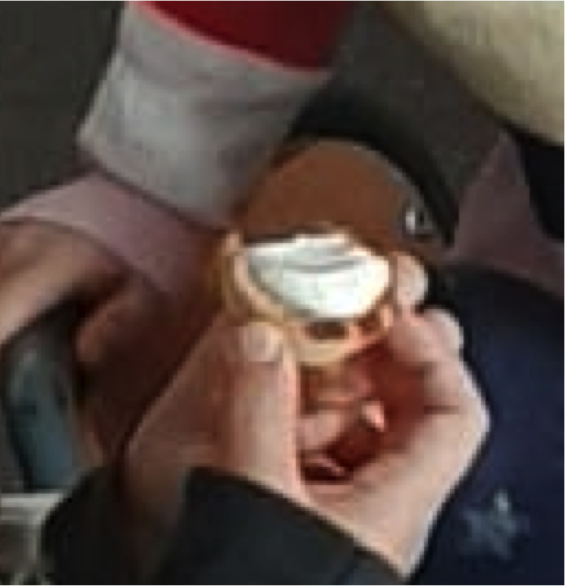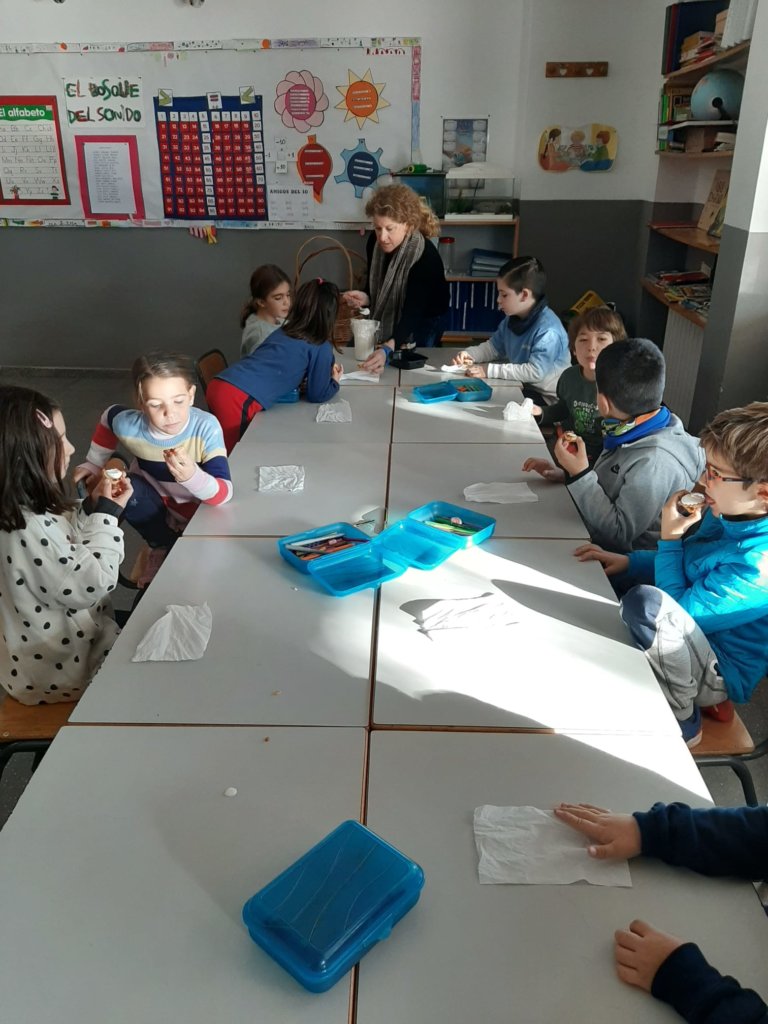Part of the fun of learning other languages is sharing cultural traditions – after all why learn the language if you can’t also appreciate the culture?
To that end, we celebrated the American holiday of Thanksgiving on Thursday, November 28th. We spent the day discussing the history of the holiday (the help the Pilgrims got from the Native Americans learning to plant and harvest food in the New World) traditional foods that Americans eat on this holiday, (turkey, stuffing, mashed potatoes, sweet potatoes and of course, pumpkin pie!) and what Americans do and and watch (American football and the Macy’s Thanksgiving Day parade.)
In Year 1 and Year 2, we also took a moment to reflect on how lucky we are and the things we are grateful for. We wrote our messages of thanks and hung them on our «Thanksgiving tree.»

Finally, to round off our celebration, we shared mini pumpkin pies with whipped cream. The sweet treat was a hit, so here is the recipe for anyone who is interested! Bon Appétit!
TARTA DE CALABAZA
ANTES DE NADA…
Es conveniente empezar diciendo que el puré de calabaza en Estados Unidos se compra ya enlatado, sin embargo en España la compramos como verdura fresca y la asamos o cocemos. El método más rápido para asarla es lavarla bien, cortarla en trozos. Desplegar papel de aluminio o papel vegetal en una bandeja del horno y poner los trozos bocabajo. Una vez asados, se separan de la cáscara fácilmente con una cuchara. Después, la batimos o licuamos con ayuda de algún aparato. ¡Ahora ya está todo listo para comenzar!
INGREDIENTES
- 500 gr de puré de calabaza
- 500 ml de leche evaporada
- 3 huevos
- 20 gr azúcar blanca
- 2 gr de sal
- 6 gr de canela molida
- 2 gr de nuez moscada molida
- 4 de jengibre molido
- 2 de clavo molido (opcional)
- 1 Masa de hojaldre ya hecho
INSTRUCCIONES
Mezclar en un bol el azúcar, la sal y las especias. A continuación, batir los huevos y añadirlos. Remover y añadir poco a poco la leche evaporada. Cuando esté todo mezclado, añadimos el puré de calabaza. Extender la masa en un recipiente para horno y poner la mezcla encima del hojaldre. Meter al horno a 170/180 º unos 50 o 60 minutos hasta que se vea cuajada. Se puede comprobar la textura con un tenedor o palillo de dientes. Si observamos que los filos de la masa se están quemando o dorando en exceso, podemos poner papel de aluminio en los bordes para prevenirlo. Podéis disfrutarla aún más añadiendo a la hora de servirla nata montada.
¡Espero que os guste!
Lindley McCarthy




